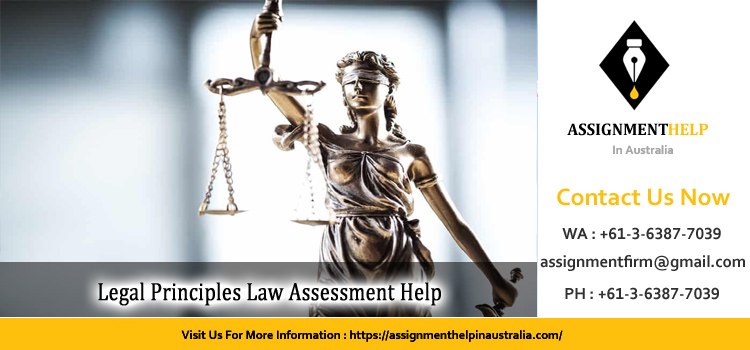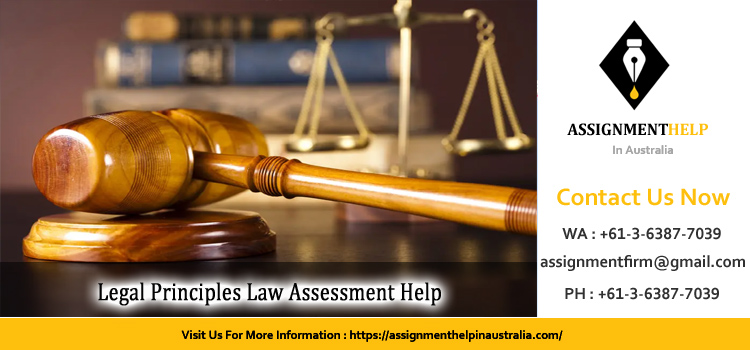Subject Code & Title :- LA023823 Legal Principles Law
Assignment Type :- Assessment 2
What you have to do
This assessment consists of 2 Tasks. All questions must be completed.
Competency requirements :- Students must achieve a satisfactory result in topic to pass this assessment.
If you do not satisfactorily complete any of the tasks you will be required to do a gap assessment or a resubmit of the entire assessment. Please note you will not be able to attempt the assessment more than twice.
LA023823 Legal Principles Law Assessment

To achieve a satisfactory result in these topics you must achieve the following results for each task:

Task 1 Research Assessment
Trusts and Superannuation :-
What you have to do:
1.You must read the information in the research question carefully.
2.You should visit the following links for useful information:
3.Research the topic and relevant statute and case law.
4.Collect collate and present the client’s relevant personal and business information from the details below for your evaluation and analysis.
5.Identify and describe any additional information you would seek.
6.Describe any specialist advice you may seek to best advise the client.
7. Interpret analyse and process the available information to obtain required knowledge on client’s business structure requirements.
8. Analyse how legal issues and risks impact on the range of different types of legal entities that may be relevant to your client’s needs in particular:
(a) the legal nature of a trust and its advantages and disadvantages;
(b) the basic characteristics of different types of trust including bare fixed discretionary or testamentary trusts;
(c) special disability trusts;
(d) the ways in which superannuation can be accumulated including self-managed superannuation;
(e) advantages and disadvantages of superannuation and different types of superannuation funds;
(f) how superannuation interests are protected.
9. Review your client’s circumstances and provide a relevant, correct and coherent advice to the client/s, identifying any type of trust or special trust/s that may be suitable for them and/or form of superannuation that may best suit their personal circumstances.
10. Detailed financial or tax calculations are not required although some general under standing of income tax thresholds and rates of income tax may be relevant in providing correct advice.
11.Correctly cite relevant legislation and decided cases if relevant.
12. Provide a compulsory and satisfactory bibliography displaying evidence of research of up to date relevant statute law or cases or textbooks or articles using either the Harvard Referencing Style or the APA Referencing Style as outlined on the OLS website.
13. Provide a written advice of no more than 1500 words excluding the required bibliography.
14. The advice does not have to be addressed but is obviously aimed at fulfilling your clients needs.
Advise Andrew and Patricia in relation to trusts and superannuation based on the following information:
These clients are well informed and are seeking rational outline of advice relating to:
a) the nature of a trust and its advantages and disadvantages.
b) the basic characteristics of three different types of trust.
c) any special trust/s that may suit their personal circumstances.
d) types of superannuation fund and their advantages and disadvantages.
e) the best way for them to accumulate superannuation in their circumstances.
f) legal protections for superannuation in Australia.
Andrew is 45 and his wife Patricia Reeves is 34. They approach you as their accountant to recommend investment structures for their retirement and specifically for their children.
They have been married for 10 years and have two children. Rodger aged ten attends a school for severely autistic children and Sarah, aged three attends a child care centre two days a week.
They own their fully-furnished home worth $900,000 in joint names as joint tenants. They currently have some $350,000 in cash in a bank account in joint names and have been paying personal taxes on the interest earned. Andrew was previously self-employed as a finance broker and is good with figures. He has no accumulated superannuation. He concentrated on paying off the mortgage on their house.
He is now a house husband with a part time job earning $15,000 per annum. He expects to do this for the foreseeable future. They do not intend to move.
Patricia works as an advertising executive and earns approximately $180,000 per annum. She graduated from University at 24 and has been working full time since then for various private advertising companies.
Her current employment is relatively secure and she has good prospects.
She currently has $120,000 invested in an industry super fund. She does not salary sacrifice and her only contributions are compulsory employer contributions.
Andrew and Patricia have no Wills. They own two recent models of medium sized cars that will fulfil their family requirements for the next five years.
LA023823 Legal Principles Law Assessment

Andrew and Patricia are fit and healthy and have private medical and health insurance but no life insurance.
Andrew and Patricia have no debt.
They want to know what a trust is how one is set up their structure and legal characteristics on going requirements the types of trust they could establish the advantages and dis advantages of such trusts and how they ie trusts structures may best be used to provide for their children.
They also want to know how they can best accumulate superannuation for their own retirement.
LA023823 Legal Principles Law Assessment
Students should refer to the following link relating to Special Disability Trusts
and must provide a compulsory bibliography displaying evidence of research of up- to- date relevant statute law or cases or textbooks or articles.
Task 1 will be assessed as satisfactory or not satisfactory
LA023823 Legal Principles Law Assessment
Task 2 Research Assessment
Real and Personal property
The acquisition ownership and/or disposal of real and personal property attracts certain types of taxation.
It is important to have a general understanding of the legal liability for some such mandatory taxes and duties on property.
It is also important have some understanding of how to create, claim, protect and perfect a security interest in property.
LA023823 Legal Principles Law Assessment
What you have to do:
1.You must read the information in the research item questions carefully.
2.You should visit the following links for useful information:
3.Research the topic websites and relevant statutes.
4.Prepare to the point answers on the required information. Bullet points are satisfactory.
5.Please do not copy and paste slabs of information.
6. Written answers in this task should be concise for example to protect a secured interest in the personal property may be sufficient.
7.No bibliography is required.
LA023823 Legal Principles Law Assessment
Examine research and briefly advise a potential client affected by the following circumstances
1. Land tax in NSW
(a) What is land tax in New South Wales?
(b) What land is taxed?
(c) What land (if any) is exempt?
(d) Upon whom is land tax levied in New South Wales? Whom does it include?
(e) How is land tax currently calculated?
(f) Can a company have a principal place of residence?
2.Stamp Duty or Transfer Duty on transfer of real property in NSW
(a) What is transfer duty on land in New South Wales and who is liable for this duty?
(b) When must this duty be paid?
(c) Name one simple effective enforcement mechanism for the payment of transfer duty on Torrens title land?
(d) Identify a reason why it is important to clarify if the purchaser of real property in NSW is a foreign person
(e) Calculate the duty respectively on the transfer of an existing one million dollar residential property in NSW on 2/7/2018 in NSW to an Australian resident citizen and then where the transferee is a foreign person
(f) Identify and briefly explain two exemptions to transfer duty in NSW
(g) Identify and explain a transfer duty concession for first home buyers in NSW
(h) Is GST included to be in the value of land for transfer duty purposes?
LA023823 Legal Principles Law Assessment
3.GST on a taxable supply of a new residential premises to a purchaser by a developer in Australia
(a) For GST purposes what are new residential premises?
(b) Who must withhold and pay the applicable GST to the ATO on the sale of a taxable supply of new residential premises in Australia?
(c) When must this payment of GST be made in the conveyancing process for a taxable supply of new residential premises in Australia?
(d) Who claims this paid GST as a tax credit?
4.PPSR
(a) Define personal property in the PPSR Act?
(b) Define a floating charge issued by a Company?
(c) Explain how such a charge would normally be created?
(d) Describe the name the PPSR gives such a security interest?
(e) Briefly describe and explain the process of perfecting a secured creditor’s interest
in a floating charge issued by a registered company in Australia today
(f) Describe and explain the potential legal consequences to a secured creditor with a valid floating charge in Australia failing to follow this process?
LA023823 Legal Principles Law Assessment

5.Real property
(a) Identify one legal document that would contain valid evidence to assist a registered tax agent to substantiate some of a real property investor’s claims for allowable deductions depreciable items capital costs and capital gains in relation to the acquisition or exchange and disposal of real property.
(b) What is a caveat in Torrens tile in NSW?
(c) Explain in what circumstances a person may lodge a valid caveat on Torrens Title property.
Task 2 will be assessed as satisfactory or not satisfactory
Checklist
• Make sure you have clearly identified each required part of the research tasks and answered each part individually including the required bibliography for Task1.
• Make sure you have provided some genuine analysis of the relevant facts and law quoting relevant legislation and case law (if relevant) to answer each question
• Make sure you correctly cite any relevant case or section of a statute.
• It is not necessary to provide a bibliography for TASK 2.


